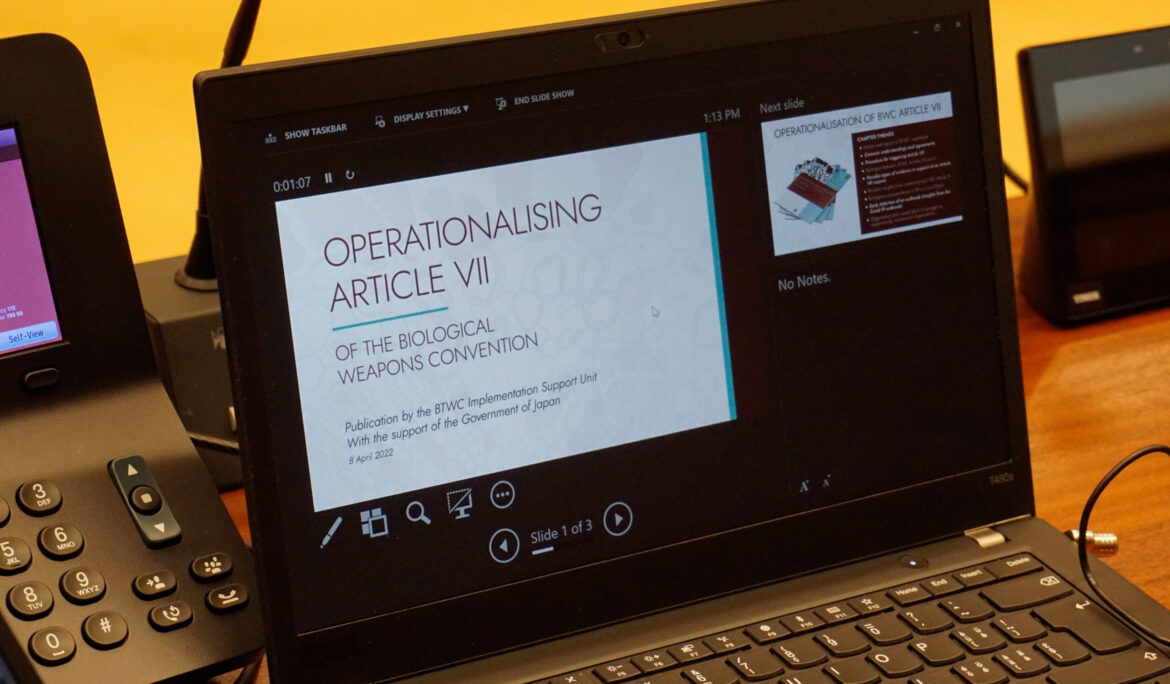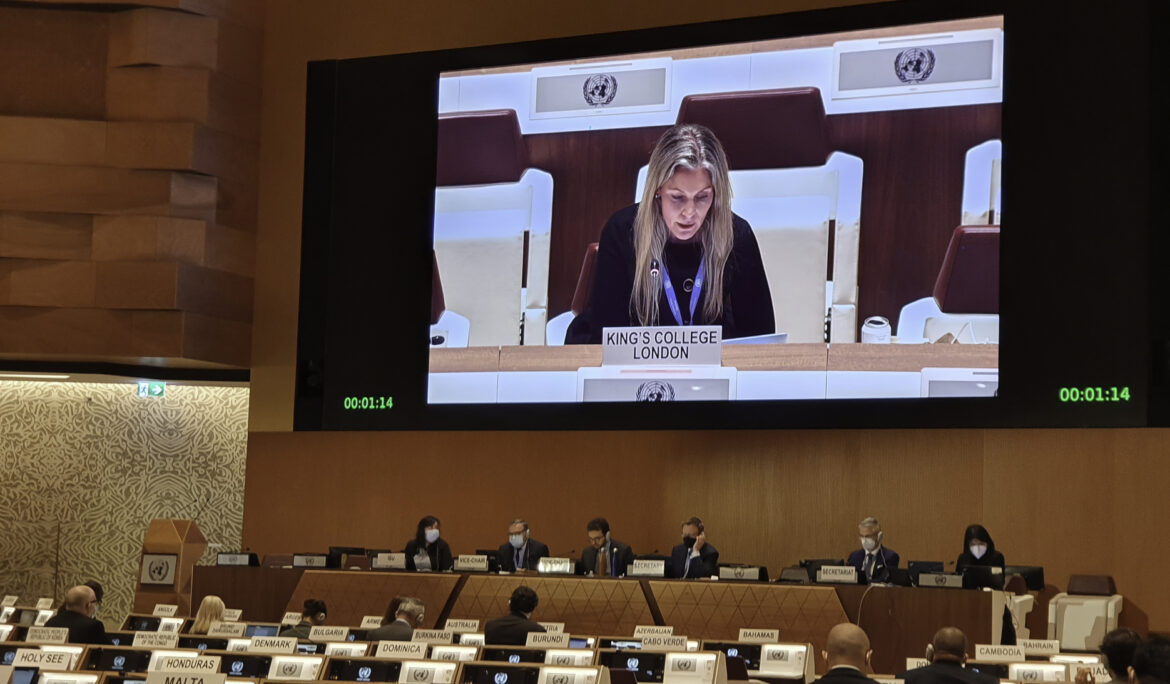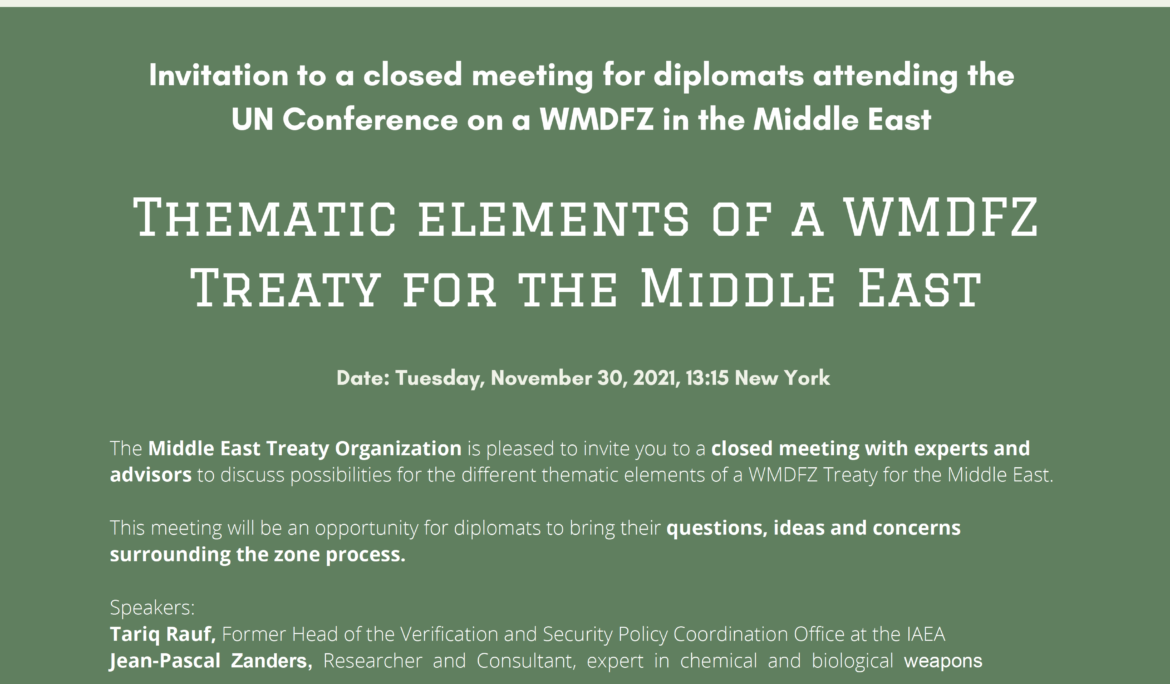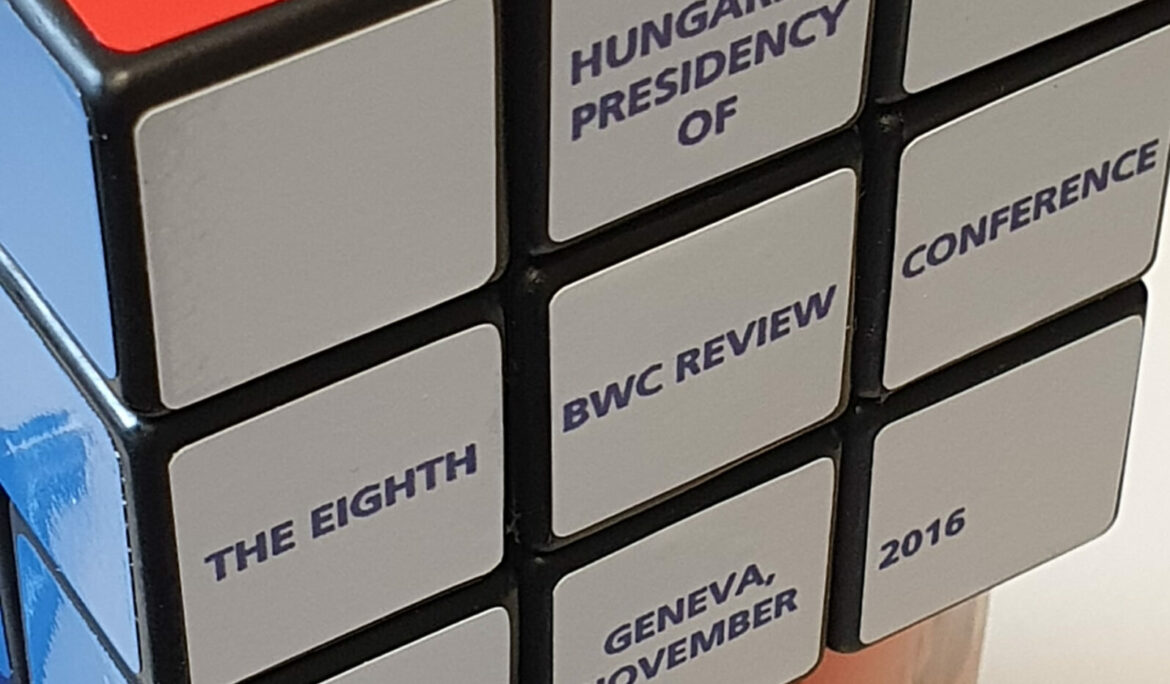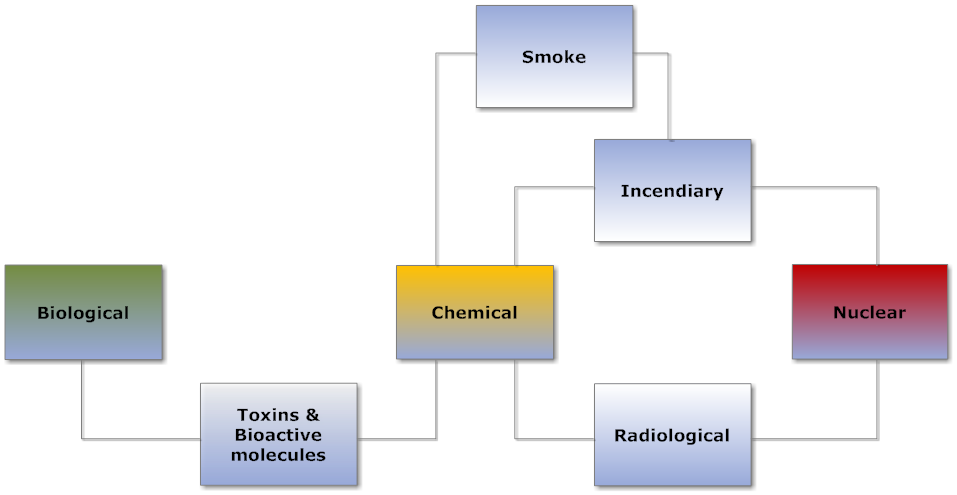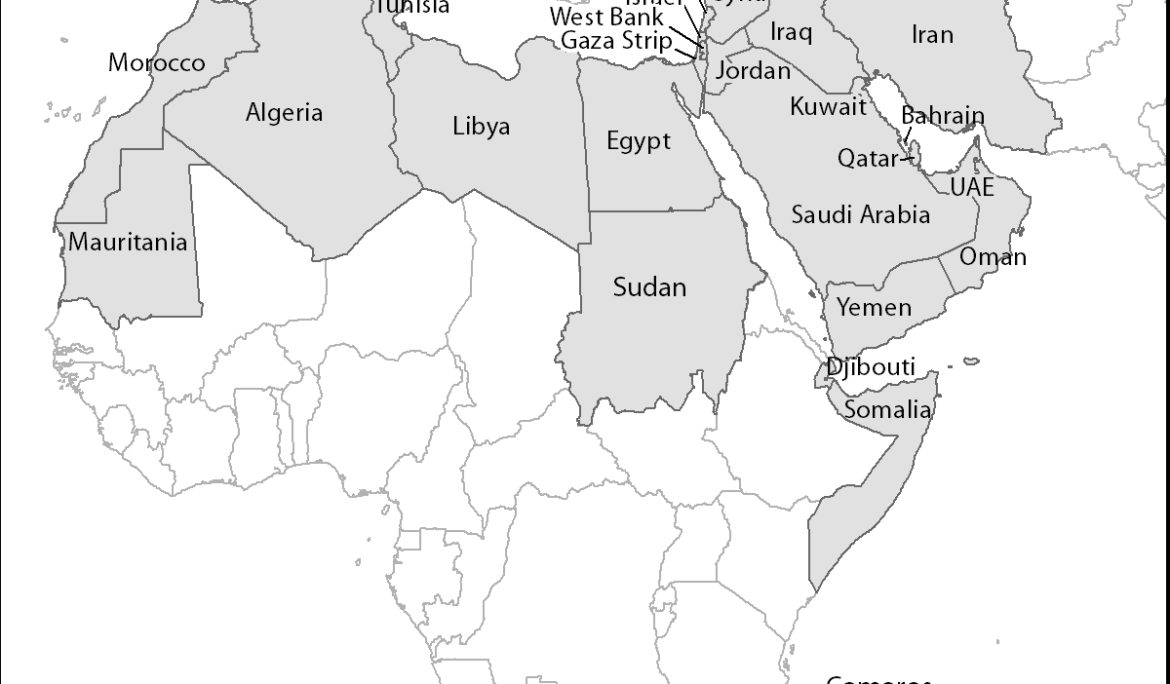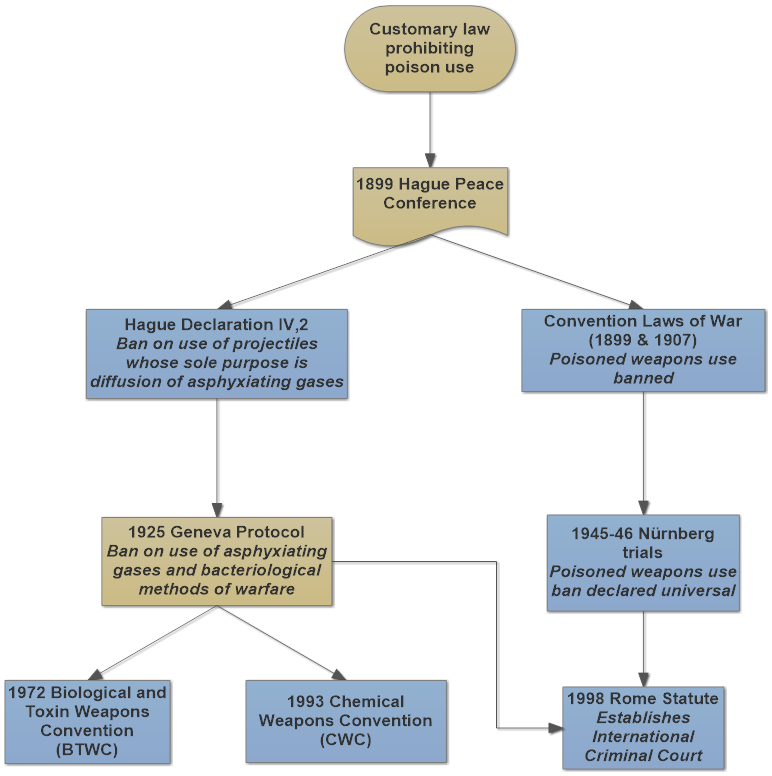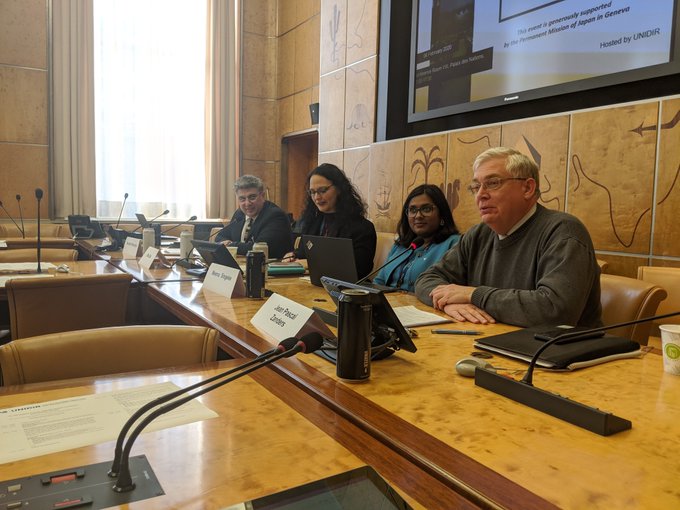Operationalising BTWC Article VII – A Task for the forthcoming Review Conference
[This new publication by the Implementation Support Unit of the Biological Weapons Convention and UN Office for Disarmament Affairs was presented on 8 April to delegates participating in the Preparatory Committee meeting in Geneva ahead of the Review Conference later in the year. The text below is from the preface.] Article VII is arguably one of the least detailed provisions in the Biological Weapons Convention (BWC). It comprises a single sentence: Each State Party to this Convention undertakes to provide or support assistance, in accordance with the United Nations Charter, to any Party to the Convention which so requests, …
Statement to Biological Weapons Convention Preparatory Committee, endorsed by The Trench
Statement to Biological Weapons Convention Preparatory Committee, Geneva 4 April 2022 Presented by Dr Filippa Lentzos, King’s College London Mr Chair, Distinguished Representatives: We condemn Russia’s unprovoked military invasion and its continuing war against Ukraine. We stand with the government and people of Ukraine, and we urge Russia to stop its brutal attacks. We echo the call by the World Health Organization, UNICEF and UNFPA to immediately cease attacks on hospitals, ambulances and medical staff.[1] It is an unacceptable strategy and tactic.[2] Mr Chair, Russia accuses Ukraine of working on biological weapons supported by the United States and other …
Trying to picture a treaty for a Middle East Zone free of non-conventional weaponry
On 30 November, the Middle East Treaty Organisation (METO) – a coalition of civil society activists and practitioners – organised an informal virtual discussion round with Middle Eastern diplomats participating in the Second Session of the Conference on the Establishment of a Middle East Zone Free of Nuclear Weapons and Other Weapons of Mass Destruction under the auspices of the UN Office of Disarmament Affairs. That session should have taken place last year, but the COVID-19 pandemic forced postponement of in-person UN diplomatic gatherings. Last Tuesday’s informal discussion forms part of METO’s efforts to draft and promote a treaty for …
Constructive ambiguity, or the insertion of science review in the CWC
(Science and technology review under the BTWC, Part 2) Comparing the Biological and Toxin Weapons Convention (BTWC) and the Chemical Weapons Convention (CWC) is a useful exercise for imagining what could have been, especially for the former relative to the latter. Completion of negotiations lies 21 years apart. What became possible by 1992 was simply not an option in 1971. The cold war had ended; the 1987 US-USSR Intermediate-Range Nuclear Forces Treaty paved the way for onsite inspections; and an eight-year war between Iran and Iraq had seen widespread chemical weapon (CW) use on battlefields, against civilians and for genocidal …
‘Within the next 5 to 10 years, it would probably be possible…’
(Science and technology review under the BTWC, Part 1) The next series of Meetings of Experts (MX) of the Biological and Toxin Weapons Convention (BTWC) is due to take place between 30 August and 8 September, a year later than originally scheduled because of the COVID-19 pandemic. Of course, provided there is no fresh resurgence in the number of infections forcing fresh meeting and travel restrictions. If the MXs proceed as planned (albeit with reduced in-person attendance), the Meeting of States Parties (MSP) will likely convene before the end of the year. The pandemic has also pushed back the 9th …
Staring at disarmament’s Rubik Cube: External consensus-building at the 9th BTWC Review Conference
(Science and technology review under the BTWC, Part 3) Hungary presided over the 8th Review Conference of the Biological and Toxin Weapons Convention (BTWC) in 2016. On the first day, Ambassador György Molnár treated all delegations and other attendants to a Rubik Cube, not just because its inventor Ernö Rubik is a compatriot, but also because the participating states parties had a significant puzzle to solve. How to achieve a sufficiently relevant outcome so the convention could take a few small steps forward. A minimum expectation was an agreement on a next round of thematic intersessional Meetings of Experts (MX) …
A Middle East Zone Free from Non-conventional Weapons (4)
Part 4: Clear legal definitions at the core of the future treaty This article is the fourth in a series of blog postings exploring the opportunities and challenges facing a new series of conferences at the United Nations in New York to eliminate non-conventional arms – essentially nuclear weapons, and to a lesser extent chemical and biological weapons (CBW) – from the military arsenals in the Middle East. Why legal definitions matter By adopting Decision 73/546 on 22 December 2018, the UN General Assembly tasked the newly established conference with ‘elaborating a legally binding treaty establishing a Middle East …
A Middle East Zone Free from Non-conventional Weapons (3)
Part 3: Defining the Middle East, a loaded question In November 2019 a conference at the United Nations in New York (report here) marked a fresh round of diplomatic efforts to eliminate non-conventional arms – essentially nuclear weapons, and to a lesser extent chemical and biological weapons (CBW) – from the military arsenals in the Middle East. As indicated in the second part of this series, participants in the new conference series depart from the definition of the Middle East used by the International Atomic Energy Agency (IAEA). At the UN Institute for Disarmament Research (UNIDIR) seminar ‘The Middle …
A Middle East Zone Free from Non-conventional Weapons (2)
Part 2: Treaties governing chemical and biological weapons In November 2019 a conference at the United Nations in New York marked a fresh round of diplomatic efforts to eliminate non-conventional arms – essentially nuclear weapons, and to a lesser extent chemical and biological weapons (CBW) – from the military arsenals in the Middle East. This article is the second in a series of blog postings exploring the opportunities and challenges to ensure that the regional risks of CBW threats and use – chemical weapons (CW) were and, as I am writing, are part of conflicts in the Middle East …
A Middle East Zone Free from Non-conventional Weapons (1)
Part 1: A new process to disarm the Middle East In November 2019 a conference at the United Nations in New York marked a fresh round of diplomatic efforts to eliminate non-conventional arms – essentially nuclear weapons, and to a lesser extent chemical and biological weapons (CBW) – from the military arsenals in the Middle East. The previous initiative died in 2015 as the review conference (RevCon) of the 1968 Nuclear Non-Proliferation Treaty (NPT) failed to agree on a consensus document. The new series of annual meetings takes place outside the NPT RevCon cycle, which consists of a quinquennial …

